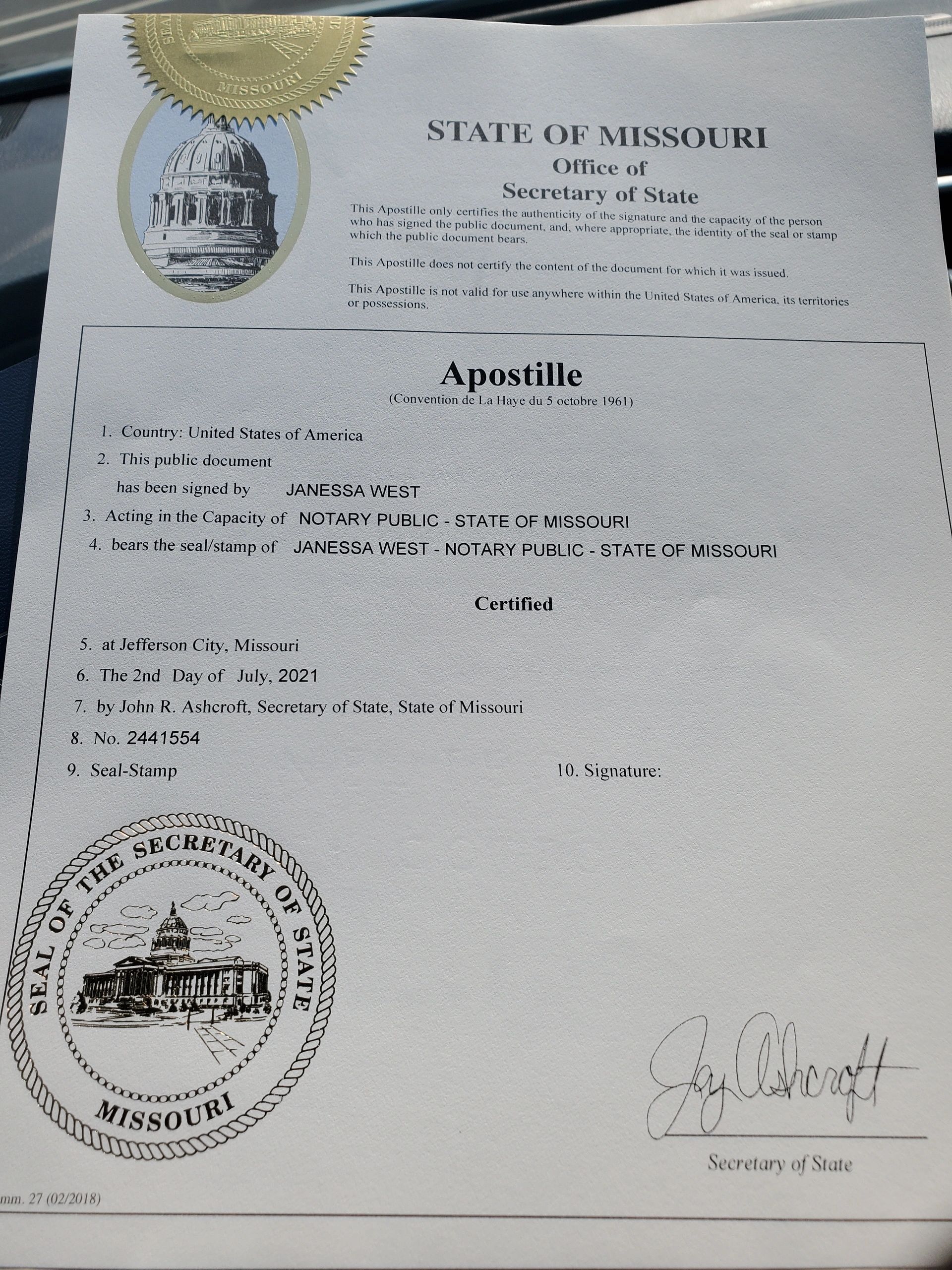Comprehending the Apostille Refine: A Comprehensive Guide to International Record Authentication
Navigating the intricate landscape of worldwide record authentication can be intimidating without a clear understanding of the apostille process. This overview meticulously details the essential actions, from recognizing which files call for qualification to sending them for confirmation by the Competent Authority. Realizing the importance of an apostille and identifying possible challenges, such as insufficient entries and language obstacles, can dramatically improve the verification trip. What exactly defines an apostille, and why is it so crucial for documents destined for Hague Convention countries? These concerns develop the structure of our exploration into this vital lawful treatment.
What Is an Apostille?
An apostille is an official qualification that confirms the authenticity of a paper for use in another nation. This qualification, provided by an assigned authority in the nation where the paper originated, makes sure that the record is recognized as legitimate and reputable in the worldwide field. The procedure of acquiring an apostille entails several steps, including the verification of the record's signatures, seals, and stamps by appropriate governmental bodies.
The apostille works as a worldwide recognized kind of verification, made feasible by the Hague Convention of 1961. This treaty, officially recognized as the Hague Convention Abolishing the Need of Legalisation for Foreign Public Papers, standardizes the procedure of document accreditation among participant countries. The apostille itself is a standardized certificate which contains details details, such as the providing authority, the native land, and the day of issuance.
It is very important to keep in mind that not all records are eligible for an apostille. Usually, public documents like copyright, marital relationship licenses, court orders, and educational diplomas qualify for this qualification. Personal papers, such as agreements and agreements, might need registration and extra actions to qualify.
Value of Apostille
Understanding what an apostille is sets the stage for appreciating its importance in international negotiations. houston tx apostille. An apostille, basically a form of qualification issued by a marked authority, validates the authenticity of a record for use in foreign nations that are signatures to the Hague Apostille Convention. This standardized process eliminates the need for additional legalisation by consular offices or consular offices, therefore simplifying worldwide deals
It ensures the reliability and acceptance of vital papers-- such as birth certifications, marital relationship licenses, and educational diplomas-- across borders. For businesses, it helps with the smooth conduct of worldwide profession, mergings, and purchases by supplying a trusted approach of document confirmation.
In addition, an apostille improves visit this site lawful security and conformity. Governments and institutions can with confidence count on the credibility of files birthing an apostille, alleviating the threat of scams and misrepresentation.
Files That Call For Apostille
When participating in global purchases or lawful matters, particular records typically necessitate the authentication supplied by an apostille. This guarantees their acknowledgment and acceptance in countries that are notaries to the Hague Apostille Convention. Generally, personal records such as birth certifications, marital relationship certifications, and fatality certifications call for an apostille, especially when they are utilized for procedures like migration, marital relationship abroad, or international probate matters.
Educational files are one more category frequently needing apostilles. Diplomas, records, and academic documents commonly require this verification for objectives such as seeking additional education and learning, employment, or expert licensing in a foreign country (houston tx apostille). This action guarantees that the papers are recognized as genuine and valid
Legal files, consisting of powers of lawyer, affidavits, and court orders, also go to the website typically necessitate apostilles. Service papers such as certifications of consolidation, laws, and commercial contracts may call for an apostille to facilitate global profession, develop foreign branches, or engage in cross-border lawful proceedings.
Actions to Obtain an Apostille

Acquiring an apostille involves a multi-step process that ensures the authenticity and approval of your documents in international nations. The initial action is identifying which records need an apostille. houston tx apostille. Common files consist of copyright, marital relationship licenses, scholastic transcripts, and corporate documents
Once recognized, the paper should be accredited by the ideal issuing authority. After certification, the record needs to be submitted to the marked Competent Authority in the file's nation of beginning.
The submission process generally needs a finished application type, the initial document, and a charge. Some jurisdictions may offer the option of expedited handling for an extra cost. Upon effective confirmation, the Competent Authority will attach the apostille certificate to the record, therefore confirming its credibility.
Common Challenges and Solutions
Navigating the apostille process can provide a number of typical challenges that, if not appropriately addressed, may delay or complicate record authentication. One regular concern is the submission of inaccurate or insufficient records. Each country has particular needs for the types of records that can be apostilled, and any type of variance from these can cause rejection. Making sure that all files are exact and complete prior to entry is important.
Another typical challenge is recognizing the different handling times. Processing times can differ substantially between countries and also in between various areas within the very same nation. It is vital to account for these variants when intending the apostille procedure to prevent unforeseen delays.
In addition, language obstacles can posture significant barriers. Documents in a foreign language typically need certified translations, and any errors in translation can bring about further issues. Engaging a professional translation solution can alleviate this threat.

Verdict
Understanding the apostille procedure significantly improves the efficiency of worldwide document verification. By comprehending the he has a good point necessity of recognizing and certifying called for documents, and navigating the entry to the Competent Authority, the process comes to be much more convenient.